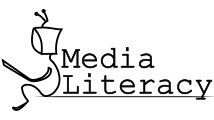About two-thirds of children aged 9–17 years in our country have asked their parents to buy them something they saw advertised on television and the internet.
This particular finding from last year’s survey organized by UNICEF and the AEM survey indicates that the impact of advertisements on children and young people is significant and shows us that there is a need to discuss this matter with them in order to critically analyse advertisements and thus promote media literacy.
However, there is another important thing – this fact is encroaching on our value system.
Every day in school I see my peers who miss no opportunity to show off their new expensive smartphone or clothes. I get the impression that these are the “tools” they use to present their personality.
I wonder, what is the real issue then?
They brag about their new phone, but does it make them better, more interesting people?
Moreover, what if it is dropped and gets smashed… is it a waste of money that could have been used to buy a good book or to travel and enjoy a new experience?
Does it really matter if we have a phone that costs €1,500, trainers priced at €200 and similar expensive things?
Can all those expensive, branded things make our lives better, more beautiful and happier?
Can our parents really afford them without depriving themselves of more important things? Is it really worth it?
Or, would it, perhaps, be better if parents took the effort to explain to us that by buying branded things that are not necessary we become part of the crowd that wears the very same things around the world and that it does not make us unique at all.
What makes us unique are things like our opinions, attitudes, value system, life experiences, that is, things which are not material.
I believe that we should talk about this in schools and in our homes, instead of talking about the introduction of school uniforms, because by imposing uniforms, we are not opening a discussion on the root causes of this situation at all. By doing this, we are not contributing to the solution, nor are we learning how to develop ourselves as a unique brand and a value system that does not identify itself with consumer culture products.
Let’s be ourselves. Let’s be media literate.






